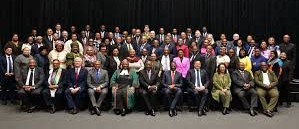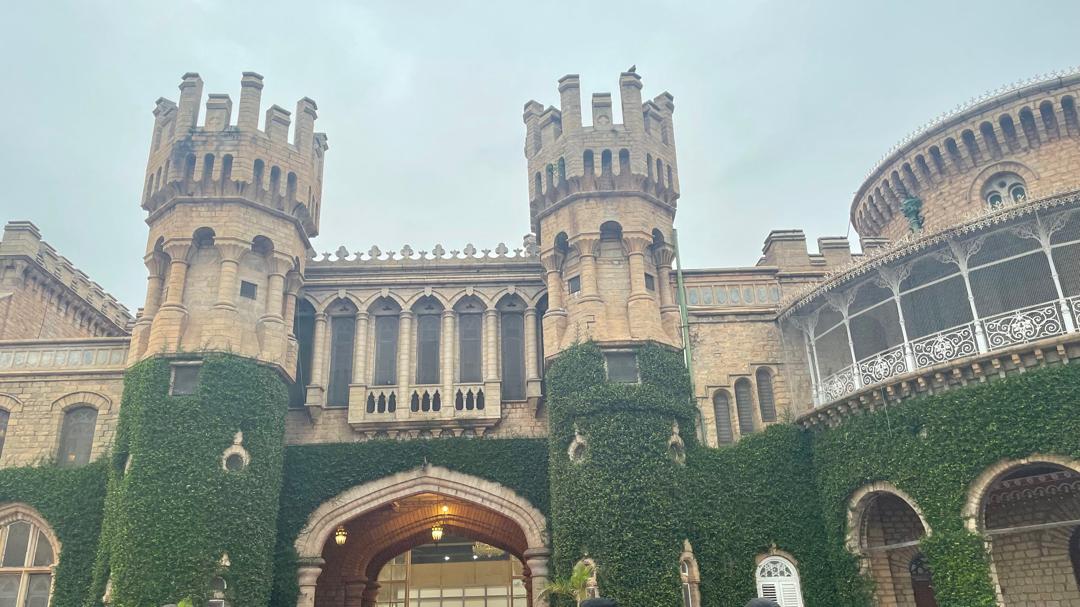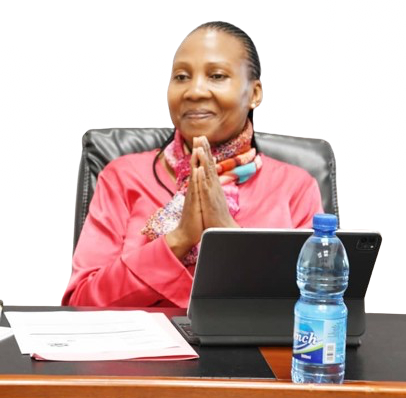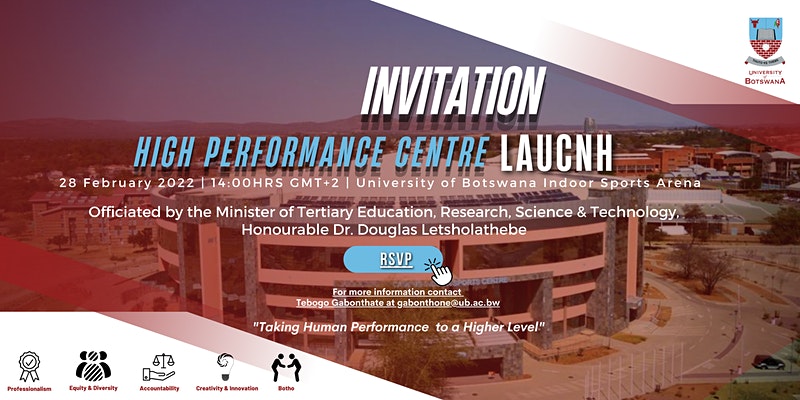
- We main that the future of the world, and of Africa, is associated with socialism
By Ambassador Phatse Justice Piitso
21 August 2024
The intellectual scope on the formulation of the theoretical thesis, about the formation of the Government of National Unity, spawned a nightmare of intense debate, across the political and socio economic spectrum, of the South African society.

The fiercest polemics of predilection and predisposition, on the form and the content of the Government of National Unity, symbolised the Berlin Wall, which came to represent the ideological divisions of the Cold War era.
The defining moment of the ideological differences was between the intellectual forces of bourgeois democratic revolution and the intellectual forces of the national democratic revolution.
The growing perception was that the national democratic revolution, led by the black political parties, represents the aspirations of the black people in general and the African people in particular, whilst the bourgeois democratic revolution, led by the Democratic Alliance and the Freedom Front, represents the aspirations of the renegades of the former racist apartheid regime.
The political conundrum brings to the fore the fundamental historic question, of the necessity of a revolutionary change of society, from one social order to the other.
The dilemma is that most of the writings and manuscripts of renowned scholars and historians, elucidate the tales of bourgeois democratic revolutions such as the Dutch revolt, English Civil war, French Revolution, Meiji restoration of Japan and less about epochal working class revolutions, such as the slave revolts of the Palmares of Brazil, Haitian revolution, Bambatta rebellion, Great October revolution, Vietnam war, or the battle of Cuito Cuanevale.
The difficulty is that they transliterate history, cognisant of the fact that the struggles for the development of human society, was never about the chapters of history as they overlap each other, but about the complex material conditions of the universe, the diverse phenomenon of nature and its relationship with mankind.
The fundamental question was never about bourgeois revolution or the working class revolution, but the universal progress and greater freedom for humanity. In his magisterial thesis of the German Ideology and the Poverty and Philosophy, Karl Marx, gives a fascinating erudition on the philosophical and ideological question, of the necessity of our struggles, for the freedom of all humanity.
He argues that, “the English revolution of 1648 and the French revolution of 1789, were not just English or French revolutions, they did not represent the victory of a particular class, or section of society, but they proclaimed a political order of a new European society.
“The victory of the bourgeoisie was the victory of a new social order, the victory of the bourgeois ownership over feudal ownership, of nationality over provincialism, of competition over the guilt, of division of land over primogeniture, of enlightenment over superstition, of bourgeois laws over the medieval privileges”.
The fundamental question of the freedom of all humanity, the freedom of society, was never homogeneous, but a complex contested ideological terrain, by intellectual forces of bourgeoisie and working class revolutions.
This requires of us, a deeper analysis and understanding of the history of the evolution of human society, from the ages of the hunters, the shepherds, agriculture and commerce.
Over the historical period, many of the Marxist historians and philosophers and the academia from the radical left, have not come to appreciate, the historic role of the bourgeoisie, in the struggles for the development of human society.
Therefore, only correct Marxist Leninist perspective, is to demystify the myth, that the bourgeoisie, cannot be revolutionary on their own behalf.
I am breeding the theoretical exposition, for simple reasoning, that it is never enough to throw stones and call it by its name, but to understand the pros and cons of the phenomenon, its strength and weakness, its mould, analysing concrete material conditions of the time, strategy and tactics, how to crystallise the intellectual milieu of the epoch.
Revolutionaries are the first to appreciate, that our theory is not a horoscope, of the history of the development of human society. Even during his first years in exile, the leader of the Great October Socialist revolution, Vladimir Lenin, was attracted by the shining lights of the cities of Finland and Switzerland, from conditions of backwardness of the feudal Russia, he was impressed by the development of capitalism in Europe.
This is the antithesis of the falsehood revisionists hold, as if the bourgeois revolutions, did not shape the political and socio economic architecture, of the contemporary world.
One of the finest revolutionaries of the African continent, the late President of the Peoples Republic of the Congo and the Chairman of the Congolese Party of Labour, Comrade Marien N’Gouabi, said:
“Marx science is not a dogma, but an open book, unfortunately this correct thought, is often used to negate Marx and his science, to produce harmful and artificial constructions contrary to Marx scientific theory. The African is the same as all other people, and the society in which he lives is subject to the same universal laws.”
Our various peoples lived and laboured in dissimilar conditions. Relying on universal laws, we must therefore study the concrete phenomenon in time and space, that is, apply scientific approach. It is just as unscientific to ignore the specific situation as it is to negate science in general.
That is why we, the peoples of black Africa, can also, contribute to human knowledge, enriching rather than negating science. We maintain that the future of the world, and of Africa, is associated with socialism. As we see it, therefore, the option today is not, in effect, between types of society but between the way and means of building a socialist society.
One can speak of African ways to socialism, but certainly not of an African socialism. Then socialism will retain its scientific character and at the same time take account of the specific conditions that is history, morality, customs, and geography, this is no novel discovery.
It was Lenin who said that “all peoples will come to socialism, each on its way and in different forms”. There is an overwhelming synthesis by some of the distinguished Marxist scholars and historians, that bourgeois revolutions are bourgeois, not because they are led by the bourgeoisie, but because they make possible, for the development of bourgeois society.
The premise is on the basis of the base and the superstructure anchored on the theoretical foundations of the capitalist mode of production. A revolutionary situation becomes democratic and revolutionary, in so far as it is able to alter the foundations of the bourgeois property relations, in favour of the working class and the poor.
But at the same time, unfavourable conditions, can find the working class, at the core of the consolidation, of the bourgeois democratic revolution.
The idea was never about being black or white, or being represented by the so-called black parties or parties led by the renegades of the former racist apartheid regime, it was never about the Democratic Alliance or the Freedom Front, it was never about the ANC or uMkhonto we Sizwe Party, Inkatha Freedom Party or the Economic Freedom Fighters.
But its contribution towards the capitalist mode of production, how it extracts surplus value and fosters the existing bourgeois property relations. During his address to the plenary of the special National Congress of the Congolese Party of Labour held in 1972 in Brazzaville, Marien N’Gouabi had to say the following profound words:
“Now the confusion was resolved, revolution means one class overthrowing another and assuming power, but it also means that revolutionary change is a long process. In the people’s Republic of Congo, we shall have to resolve the main contradiction, between the people and imperialism, before we can advance to the next stage, socialism.
“The revolution which is underway is national because its goal is to end French imperialist domination which still controls the national economy and therefore, factually controls also the political situation.
“It is national too because one of its goals at this stage is to create the objective and subjective conditions for the formation of a Congolese nation and rid the country of tribalism and regionalism.
“The revolution is democratic because it replaces minority rule and because it draws its support from the masses. It is a Peoples revolution because it is attempting to create the foundations for the next stage, the socialist revolution, and is preparing all the prerequisites for this by mobilising the masses under the banner of the proletariat and its vanguard the Congolese Party of Labour.”
The raging debate on the theoretical foundations of the Government of National Unity, takes the centre stage, thirty years after the triumph of our democratic breakthrough, which paved way for the leadership of our country, under the stewardship of the late President of the ANC and the first democratic President of the Republic of South Africa, Nelson Rolihlahla Mandela, on a firm foundation of the spirit of reconciliation, reaching a consensus, to form a government of National Unity.
This was unprecedented after the overwhelming support, our national liberation movement enjoyed, during our first national general elections.
For the past thirty years of our democratic dispensation, our national liberation movement, has been at the forefront of leading the project of national democratic revolution, of the reconstruction and development of our country, with the objectives of building a non-racial, non-sexist, democratic and prosperous society.
The revolution, in essence is national, democratic, bourgeois and revolutionary in character. It is national because its strategic objectives are to build a non-racial, non-sexist, democratic and prosperous society, it is democratic because it seeks to build a new democratic society based on the will of the majority of our people, it is bourgeois because it fosters the foundations of the capitalist mode of production and property relations and is revolutionary because it seeks to transform the socio economic commanding heights, in favour of the majority of the people of our country.
The fundamental question is not to ask ourselves why the ANC entered into a Government of National Unity with parties like the Democratic Alliance and the Freedom Front or Inkatha Freedom Party and ActionSA and other parties at the National, Provincial and Regional levels, but the overarching compelling factors which led to our dismal performance during the recent national general elections.
This is the pertinent question we have to ask ourselves in a more robust, honest and frank manner, without fear and any other prejudice. We have to ask ourselves this hard question, in order to give a critical appraisal of our strength and weaknesses, to find ways and means of improving on the weak state of the affairs of our movement, its leadership and organisational structures.
Taking stock of both the subjective and the objective factors of the time, the ANC is at its weakest stage in the history of its existence over a century ago. We need to restore the confidence of our people that the ANC remains to be the only political party with the capacity to carry their wishes and aspirations of a better life, by ensuring that we accelerate socio economic transformation, fighting crime and abuse of women and children and confronting the high level perceptions of corruption and the inability of our public representatives to serve in the best interest of our people.
We must ask ourselves difficult questions why the Communist Party, has lost its strategic thrust, as the vanguard party of the struggles of the working class and the poor, what has debauched its revolutionary discipline, theory and leadership. The unity and the renewal of the SACP as the glue that holds the revolution together and a vanguard led by the most advanced elements in society is of historic importance.
The political fragmentation and disintegration of the largest Trade Union movement, COSATU is the sad story in the history of the struggles of our people. We need to find ways of rejuvenating the giant organisation of the working class, building on the momentum of the unity of all the organised working class formations in the country.
The unity of the working class is the unity of our national democratic revolution. How do we strengthen the South African National Civic Organisation and other progressive civil society formations, youth and women organisations? How do we recommit ourselves to the moral regeneration of society, how do we foster nation building and formation, accelerating socio economic transformation and therefore solid foundation of our democratic society?
My view is that based on the analysis of the balance of forces in our country, the continent and the world, the Government of National Unity, is not out of our own making, but the product of the struggles of our people for a better life, for a better future, the future of all humanity, the future of our ideal democratic and prosperous society.
It is a product imposed by the realities of the South African situation, and a new stage of our struggle for the declaration of our Fourth Republic. We contribute to this debate highly inspired by the revolutionary notion that ideas, thoughts, and concepts produced, determine and dominate men, their material conditions and real life. The task before all of us is the unity and renewal of our movement and the revolution.
- Ambassador Phatse Justice Piitso is a member of the African National Congress, writing this article in his personal capacity.









